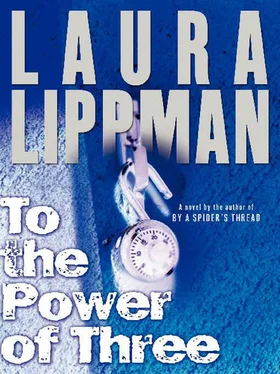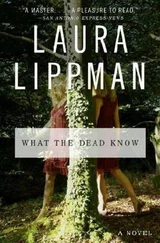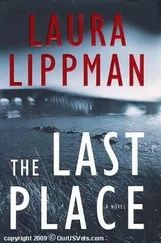Wherever you go, there you are.
The nonsense sentence jolted into Dale’s consciousness as if it were another pothole along Frederick Road, whose neglected surface made even the funeral home’s town car bounce and rock. It was a line from a film, although Dale wasn’t sure which film, or if he had the wording exact. But he recognized it as stoner humor, hilarious if you were high. And Dale had been high a lot in high school.
Then one day, when he and Glen were seniors, he had watched Glen make the most ungodly mix of melted chocolate, butter, raw eggs, and flour. “It’s brownie mix,” Glen had said, proffering the bowl. “You left out the sugar, Glen.” “Oh. Yeah. I thought it tasted kind of bitter.” Dale had sworn off pot from that day on, while Glen had pretty much majored in marijuana. He had probably smoked a bowl this very morning, judging by his eyes-and how Dale envied him for that. Maybe that would blunt the pain. Alcohol clearly didn’t work, although he had given it every chance. Alcohol and Ambien and Tylenol PM, all worthless. He had even tossed down a couple of Percocet, left over from Susannah’s dental surgery two years ago, but the painkillers were helpless in his body. They needed a literal inflammation, something they could dull and still.
“The old house,” Glen said. They were passing a section of row-houses with Tudor touches that had been intended to make them distinctive but only served to make them odd and cheap-looking. “We’re going by the old house, Dad.”
Susannah, always gratifyingly interested in Dale’s past, made a point of craning her neck and looking at the house before it was out of sight, but Thornton Hartigan didn’t even turn his head to the side.
“Those houses,” he said, “were pieces of shit.”
The Hartigans had lived here on Frederick Road in their leanest years, back when it was still unclear if Thornton ’s decision to start amassing property in north Baltimore County would accomplish anything more than his complete and total ruin. The place was tiny even by rowhouse standards, two bedrooms and a single bath. Dale and Glen had been literally on top of each other, in a rickety bunk bed, the kind that would now be banned by several federal and state regulatory agencies. The household air was thick with the smells of a family whose resources were stretched thin-onions, potatoes, bacon fat. “The wolf is at our door, Martha,” Thornton had said one night, unaware that the boys were listening from the top of the stairs. The brothers had spent weeks trying to catch a glimpse of that elusive animal. Yet the little house was cozy-one of the advantages of a middle rowhouse, less light but more warmth-and Dale remembered those lean years as a happy time. Did children ever really know if their households are happy, or only if they are happy? Is there a difference? He thought his pretty stone farmhouse was one of the unhappiest places on earth during those last few years with Chloe, but Kat would have given anything to maintain the status quo.
Naturally Dale had thought quite a bit about whether it was an advantage for a kid to know hard times before being catapulted into good ones. Conventional wisdom held that it was better for children not to be given everything. Yet his own brother, Glen, who had been fifteen when their father finally hit, was as wrecked as any lifetime trust-funder, while Kat had always been sweet and modest. He was not romanticizing his daughter, Dale insisted to himself, as the limousine turned into Loudon Park. Kat had a natural goodness from the day she was born, a capacity for sharing and a marked lack of interest in material things. He liked to believe it was because he and Chloe, whatever their faults as people, had imparted to their daughter the sure message that they would take care of her, that her needs would always be paramount to them.
Of course, most parents think they’re doing the same thing. Dale’s dad probably credited his ways with instilling Dale’s work ethic. It would never occur to him to ponder the fact that the son he had ignored at the best times, bullied at the worst, had turned out to be the successful one, while Glen, indulged and bailed out at every turn, was a mess. When Dale had tried to make this point to his father-and he had, in a roundabout way, a time or two in his twenties-he was treated to the Hartigan legend, as Dale thought of it. How Glen, as the second twin by three minutes, had briefly been deprived of oxygen, which meant his mere normalcy was an achievement to be celebrated. Dale wasn’t even sure if this story were true, and his mother had always been tactfully vague on the subject. At any rate, it seemed to Dale that Glen had been given unconditional love, whereas he’d had to earn the love portioned out to him.
The result was that people respected Dale but they loved Glen, a chicken-or-the-egg conundrum, in Dale’s opinion. Was Glen loved because he was charming, or was Glen charming because he had been heaped with so much selfless love from the day he was born? Dale would probably be a pretty collegial fellow, too, if he had been cosseted and cotton-wrapped the way Glen was.
Kat, in fact, was one of the few people who hadn’t been beguiled by Glen’s easygoing nature. Oh, she loved him-he was her uncle, after all, and he tried to be doting, although he seldom followed through on his best intentions. His big talk of trips or projects, such as keeping a horse for her on his acreage, tended to peter out pretty quickly. Kat had realized early on that Glen was not reliable, and it was the one thing Kat required in the people around her-constancy, dependability. This was the key difference between Chloe and Glen, kindred spirits in so many respects. Chloe, no matter how scattered and crazy she might be with Dale, was someone Kat could count on. Even in the wake of Kat’s death, Chloe was meeting every expectation as a mother.
And so she was here, suitably dressed and behaving herself, holding Glen’s hand. What was it like, holding hands with his brother? Did it feel like Dale’s hand? Even when a twin was fraternal, even when you had spent most of your life making sure the physical resemblance was the only resemblance, it was hard not to think such thoughts.
Peter had thoughthe could skip the funeral, but when his parents got home Monday night, his mother insisted they go as a family. His mom was a little too much in awe of the Hartigans, in Peter’s opinion, but she had also been genuinely fond of Kat. She was one of the few people who thought Kat looked better before she lost weight, who was always trying to load her up with frijoles, plantains, and arroz con pollo.
Still, the Laskos hung back once they arrived, determined not to be presumptuous. Mrs. Hartigan motioned to them and insisted they take seats in the second row. His eyes on the ground, Peter stuck out his hand to the dark-haired man at her side, muttering, “I’m so sorry, Mr. Hartigan,” only to have Kat’s mom correct him. “This is Kat’s uncle, Glen. Her father’s over there, with the young redhead.”
Mr. Hartigan, the real one, had given his ex-wife a sharp look-she hadn’t tried to mute her voice in any way-then taken Peter’s hand with a loose, quick shake that reminded Peter just how much contempt the man had for him. Because I dated your daughter? Or because I stopped? To this day he still wasn’t sure what Dale Hartigan had wanted from him.
Dale noticed Peter’s errorwith his brother-but also saw how quickly he recovered from it. The young man had developed some poise in the last three years, but he still radiated that desperate like-me vibe. That same quality probably explained his success as an actor. It could be a useful quality, Dale thought, watching Josie Patel swing along on her crutches.
Читать дальше












